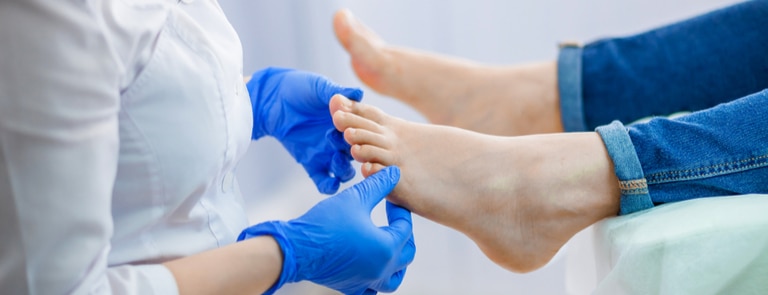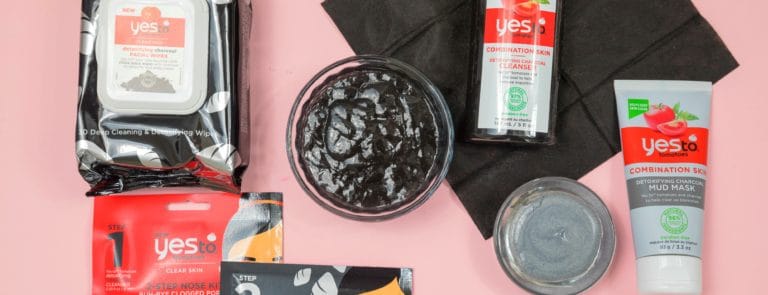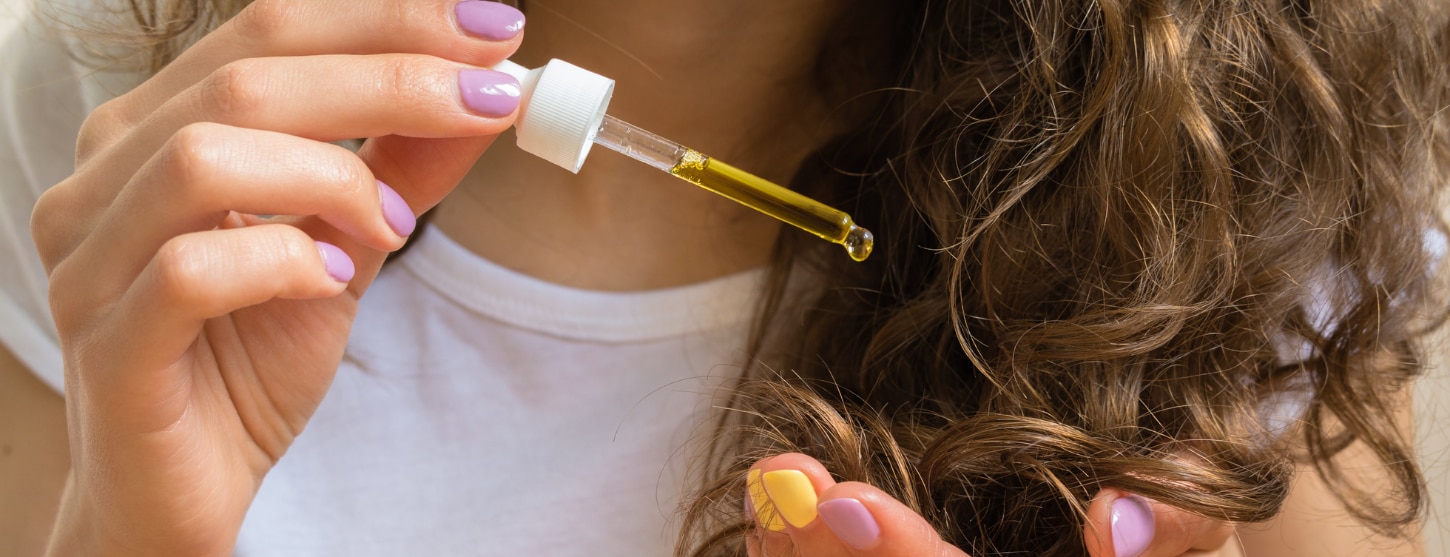20% off €35
How to treat fungal nail

Fungal nail is a common concern. Between 3% and 8% of us experience fungal nail symptoms in our lives.1
While fungal nail can be unsightly, it can also be painful and may even cause complications for other health conditions.2 If you think you might have a fungal nail infection, it’s essential to start treating the problem. To get you started, we’ve got plenty of helpful information below.
What causes fungal nail?
Fungal nail infections (also known as tinea unguium) can happen to anyone. However, they’re usually most common in men and older adults.3,4
It’s caused by fungi that thrive in warm, moist environments. For that reason, fungal nail infections are most common on toenails (although they can affect fingernails too).5 We naturally have fungus on our bodies, but it can become a problem when this fungus starts to overproduce. You can also ‘catch’ fungal nail from walking barefoot in public areas or sharing nail tools.6
Some people might be more at risk of developing fungal nail infections for several different reasons. These could include:
- Certain health conditions
- Wearing artificial nails
- Working in a warm or humid environment
- Genetics
- Injury
- Wearing socks/shoes that prevent ventilation7
How to treat fungal nail
There are a variety of different treatments available to help with fungal nail infections. However, it’s worth remembering that these can take a long time to work.8 If you’re concerned, it’s a good idea to visit your doctor or pharmacist. They’ll be able to provide you with the best possible treatment plan for your needs.
Some treatment options might include:
- Antifungal creams
- Antifungal tablets
- Nail removal
- Laser treatments9
You may also want to try treating your fungal nail at home. Remember that doing this may not be as effective as prescribed or doctor-recommended treatments. There might also be complications if your fungal nail is left untreated, especially if you have a health condition.10
Some at-home treatments might include:
- Tea tree oil11
- Snakeroot extract12
- Oregano oil13
- Garlic14
How to prevent fungal nail
Prevention is best when it comes to fungal nail infections. This condition can be challenging to treat and may not go away immediately. Treatment can take a long time too, so it’s a good idea to try and minimise the likelihood of developing fungal nail.15
Some tips for preventing fungal nail may include:
- Treating athletes foot as soon as you notice symptoms
- Keeping to a regular foot care routine
- Wearing clean socks and shoes
- Wearing flipflops in communal showers or by the pool
- Avoiding sharing towels, shoes or nail care tools16
Keeping your feet clean, dry, and in good condition is one of the best ways to avoid fungal nail infections. Look for foot care products to help you do just that. Remember, it’s essential to talk to your doctor if you notice any unwanted symptoms, especially if you have a health condition.
Last updated: 2 April 2021
- https://patient.info/infections/fungal-infections/fungal-nail-infections-tinea-unguium
- https://www.nhs.uk/conditions/fungal-nail-infection/
- https://www.ncbi.nlm.nih.gov/pmc/articles/PMC4047123/
- https://www.mayoclinic.org/diseases-conditions/nail-fungus/symptoms-causes/syc-20353294
- https://www.nhs.uk/conditions/fungal-nail-infection/
- https://www.medicalnewstoday.com/articles/151952
- https://www.cdc.gov/fungal/nail-infections.html
- https://www.medicalnewstoday.com/articles/151952
- https://www.nhs.uk/conditions/fungal-nail-infection/
- https://www.sciencedirect.com/science/article/abs/pii/S0190962212004641
- https://www.nccih.nih.gov/health/tea-tree-oil
- https://pubmed.ncbi.nlm.nih.gov/18671197/
- https://www.sciencedirect.com/science/article/abs/pii/S0308814616306392
- https://www.ncbi.nlm.nih.gov/pmc/articles/PMC2629014/
- https://www.nhs.uk/conditions/fungal-nail-infection/
- https://www.nhs.uk/conditions/fungal-nail-infection/



